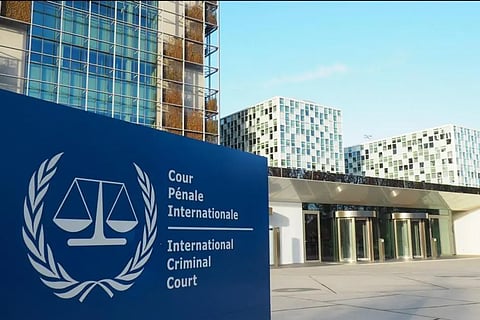
- NEWS
- the EDIT
- COMMENTARY
- BUSINESS
- LIFE
- SHOW
- ACTION
- GLOBAL GOALS
- SNAPS
- DYARYO TIRADA
- MORE

CAGAYAN DE ORO CITY — US sanctions on key International Criminal Court (ICC) officials have spilled into Philippine politics, energizing allies of former President Rodrigo Duterte and sharpening debate over his detention.
A movement pushing for Duterte’s return to the Philippines told the DAILY TRIBUNE that ICC Deputy Prosecutor Mame Mandiaye Niang of Senegal — who opposed Duterte’s bid for interim release — is among four ICC officials recently designated by the US State Department under Executive Order 14203.
The order authorizes sanctions on foreign persons allegedly involved in malign ICC actions against the United States, Israel and their allies.
According to the group, Niang argued in a June filing that Duterte should remain in custody to ensure his appearance at trial, saying the former president “does not accept the legitimacy” of the proceedings — citing Duterte’s remark that arresting officers would “just have to kill [him]” to bring him to court.
Niang also referenced an incident involving Duterte’s partner, Honeylet Avanceña, who was seen on video striking an arresting officer with her phone, and noted claims by Duterte’s family and supporters that he was “kidnapped or abducted.”
Benito Ranque, a close Duterte ally, said the Executive Order’s impact is “slowly unfolding,” adding that the State Department designates individuals for sanctions, which the US Treasury implements.
In its announcement, the State Department said it designated Kimberly Prost (Canada), Nicolas Guillou (France), Nazhat Shameem Khan (Fiji), and Mame Mandiaye Niang (Senegal) pursuant to Section 1(a)(ii)(A) of E.O. 14203 for having directly engaged in ICC efforts to investigate, arrest, detain, or prosecute a “protected person” without that person’s country’s consent.
The US cited Prost’s role in authorizing an ICC probe into US personnel in Afghanistan and Guillou’s role in authorizing arrest warrants for Israeli leaders.
Deputy Prosecutors Khan and Niang were cited for continuing to support ICC actions against Israel, including upholding warrants for senior Israeli officials.
For Duterte’s supporters, Niang’s inclusion is proof the ICC process is compromised.
For human rights advocates, the sanctions are a political broadside that won’t alter the court’s handling of drug war cases.
What’s clear is that the move has intensified an already charged legal and political standoff — one that now stretches from The Hague to Washington and back to Manila — where every filing, quote and designation feeds into the larger battle over accountability, sovereignty and the rule of law.
